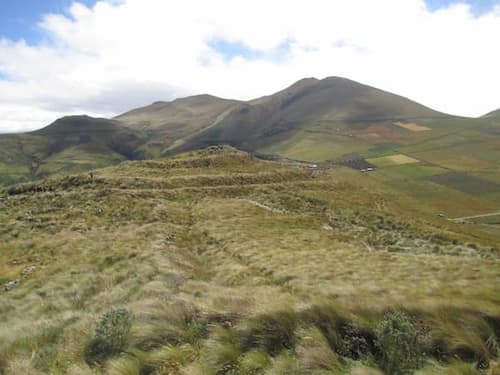Ecuador Fieldwork in Anthropological Methods“The Andes in Global Perspective:
Field Methods in Cultural Heritage and Environmental Justice"
Project Background
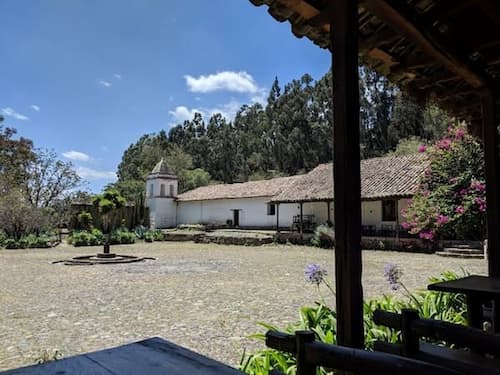
Since 2001, the Pambamarca Archaeology Project has investigated a large complex of high elevation Inca and local fortresses dating to a period of Inca expansion, and local resistance, in the region around 1500. Since 2014, the project has also investigated additional transformations and forms of local resistance to Spanish colonization and rural lives in the region over the past five centuries with an emphasis on a major hacienda and textile mill (obraje) called Hacienda Guachala (www.guachala.com). This season, we will explore these last five centuries of history in the region, including today’s export flower industry, and the global connections between consumers (like us) and local producers.
We will be primarily focused on artifact analysis and digital heritage documentation based on existing artifact assemblages this year. We will conduct this work in collaboration with local communities and stakeholders. You will learn techniques of artifact analysis and digital documentation. We will also conduct small-scale excavations at Hacienda Guachala to better understand the everyday lives of hacienda laborers (18th-20th centuries). We will meet with local organizations and visit sites to better understand how these centuries of history relate to the export flower industry today, and our connection as consumers. Students will conduct independent pilot projects on topics of their choice.
Course Description
Instructional Method: Hybrid. Travel Location: Cangahua, Ecuador. Travel Dates: July 3 – July 31, 2023. Andes in Global Perspective: Field Methods in Cultural Heritage and Environmental Justice (3) In this multi-method, experiential learning, field course, students learn the basic methods of anthropological research: archaeological excavation, artifact analysis, ethnographic inquiry, digital cultural heritage stewardship, and community based participatory research methods. The work focuses on the contemporary export flower industry around Cayambe, a major supplier to the United States, and how centuries of sociopolitical transformation and ecological degradation since Spanish colonization (ca. 1532) have shaped these ongoing struggles for environmental justice across Indigenous communities in the region today. Students participate in fieldwork, including historical archaeology at Hacienda Guachala, a major textile and agricultural producer (ca. 1550-present), along with various site visits, lectures, and digital heritage workshops. Note: The course requires both the in-country portion (4 weeks) and post-fieldwork virtual assignments (2 weeks). Permission: department. Crosslist: ANTH-639-001.
Highlights and Benefits
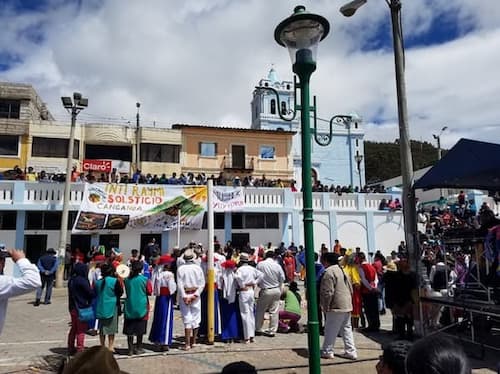
- International research opportunity
- Strong, local partnerships with in-country organizations
- Immersion in local communities situated in rural landscapes
- Spanish-language immersion setting
- Practice skills in anthropological research methods in an international context
- Opportunity to grow your professional network and create lasting friendships
Attributes To Thrive
- Willingness to comply with appropriate safety and security measures to conduct research in Ecuador
- Open-minded; flexible; adaptable
- Able to work in teams with diverse students and local communities and stakeholders
- Capable of enduring rustic, communal accommodations
- Capable of enduring life at high-altitude with extreme sun, cold, wind – sometimes all at the same time!
- An openness to considering new experiences and different perspectives
- An understanding that student participants are “ambassadors” of the project to the communities with which our work is carried out.
A Typical Day
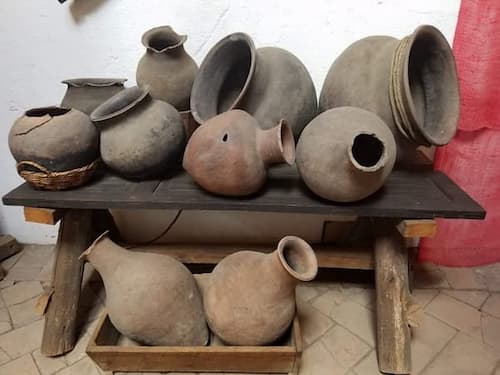
- Early Breakfast
- Group Check-In
- Field and Skills Training most of the day (rotation of Artifact Analysis, Archaeology, Independent research)
- Dinner
- Lectures/Classroom Activities
Program will also include: Archaeological and cultural site trips, meetings with local organizations, workshops with local communities and much more!
Food and Lodging
Students will be residing in the small town of Cangahua, which is located in the County of Cayambe on the northeastern limits of the Province of Pichincha (all about one hour north-east of Quito, but Cangahua itself may not appear on maps). The capital city of this county is also named Cayambe, which you will find on any map of Ecuador. Cangahua sits in the hills south of the city of Cayambe and it takes about 20 minutes to travel between them by bus. As you will discover, Cangahua itself is wonderful place to live — small, open and enjoyable.
Participants will stay in a dormitory-styled house located behind the main church in the town of Cangahua. This ‘Casa Comunal’ is a large, two-story building with electricity, running water, showers, a kitchen, a mess hall and plenty of beds. When the project is up and running meals will be prepared for the project by cooks that are very familiar with the project. The food is excellent and super healthy! (Imagine tasty quinoa pancakes.)
Getting to Ecuador
All students will be arriving to Quito’s international airport on or before July 3. If you arrive on July 3 we will coordinate your transport from airport to our project house. If you arrive before July 3, you are on your own, but will be given detailed instructions for how to get to our main project living quarters. It is actually quite easy, and we are big proponents of arriving early and staying later as part of your adventure to South America. Many students make friends and decide to stay later traveling. You are already there so you might as well see the world!
Costs
To participate in the program you must register for ANTH439/639. Please see tuition rates at AU for Summer 2023.
Food and lodging, in-country transportation and all other project costs like fieldwork equipment, site visits, field trips, etc are covered.
You will need to purchase airfare, and any other costs incurred outside of the project dates are additional if you choose to travel before or after.
Important: If you do not have a passport, you must get one ASAP!! Passports, even expedited, are taking longer currently, possibly over 7-8 weeks for expedited.
If you do have a passport, make sure it will be valid for at least 6 months after your final day in the country!
Not an AU Student? If you are not an AU student, please contact Zev Cossin (Cossin@american.edu) for information applying and registering as a non-degree seeking student. Depending on your situation, we can find options for you to participate, pending program space.
Please see more info at AU Non-Degree Registration.
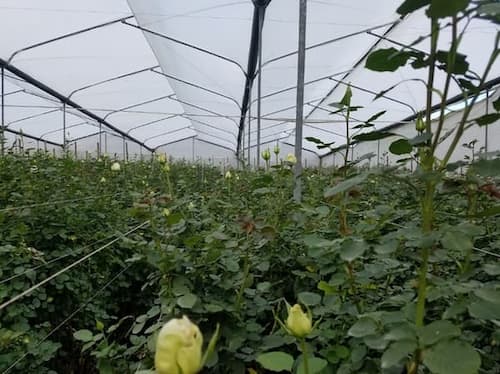
Background Bibliography
Connell, Sam, Amber Anderson, Chad Gifford, & Ana Lucia Gonzalez. 2019 “Inka Militarism at the Pambamarca Complex in Northern Ecuador.” Latin American Antiquity. 30(1): 177-197.
Cossin, Zev. 2019. “Community and the Contours of Empire: The Hacienda System in the Northern Highlands of Ecuador.” International Journal of Historical Archaeology 23:1039–1062.
Additional Resources will be assigned and provided as part of ANTH439/639.
All photos by Zev Cossin.
